Kareem Abdul-Jabbar on fiction, the art of storytelling and more in Q&A

Kareem Abdul-Jabbar is one of the greatest players in basketball history, but he still considers himself a rookie when it comes to fiction writing. The 19-time All-Star and six-time NBA champion recently published his second young adult novel with writing partner Raymond Obstfeld, and he is also debuting another book about the brother of Sherlock Holmes in the fall.
Abdul-Jabbar’s most recent tale is the second in his “Streetball Crew” series and is titled Stealing The Game. In it, protagonist Chris Richards tries to uncover what is happening with his older brother Jax, who has returned home from college under mysterious circumstances. As Chris plays sleuth, he also navigates the world of being a kid, including his secret love for comic books, his not-so-secret love of basketball and his crush on a girl in school.
A chat with Charles Barkley about basketball analytics and beyond
SI.com recently had a chance to discuss the book with Abdul-Jabbar, as well as this generation’s relationship to the game of basketball, the timelessness of John Wooden’s quotes, and Abdul-Jabbar’s own approach to writing.
SI: What did you draw from when you sat down to write this book?
Kareem Abdul-Jabbar: I used my own experiences and my own adolescence to frame the story and relate to some things. I know that every generation of kids basically goes through the same thing.
SI: Has writing been something you’ve always done? You’ve written in a variety of media now, between essays, non-fiction and now this young adult series. Is there a type of writing you like doing most, and where does your inspiration come from generally?
KAJ: I’ve enjoyed writing ever since I was in grade school. My history background in having to write papers on historical subjects is really what I learned a lot from. I would say that’s really my foundation. I just wrote mainly non-fiction, and I’ve expanded it from there.
SI: Do you rely more from personal experience when you’re writing fiction, or is it a combination of other things?
KAJ: To write fiction you really have to have a commitment to being a storyteller. In order to tell an effective story and a story that creates interest and maintains it, you have to write a certain way. That’s basically my approach. I just try to be a good storyteller and have an interesting story to tell.
Kareem quotes cover Adidas’ Black History Month sepia-toned collection
SI: Everyone’s relationship with the game of basketball seems to change throughout the years even though the game at its foundation is still just putting a ball through a hoop. With this generation that’s growing up now and everything that’s going on in the world around them, what do you feel is most important for them to gather from this book itself and from their relationship with basketball?
KAJ: The whole idea is that it’s a team sport. You have to be able to react to what’s going on around you in the moment. What are your teammates doing? You have to understand team play. Basketball is great in that sense because the team is just big enough. It’s five people. So it’s just big enough that you get to know each other. It’s not like football where you have two different squads and special teams. Basketball is just five guys, so it’s pretty intimate in the team concept that it promotes.
SI: One of the lines from the book that stuck out for me was, “No adult riddles or life lectures or hidden meanings. No secrets. No lies. No brother hiding something. No parent pushing you somewhere. No hidden drawers. Just a ball through a hoop. That I understand.” Did you have anyone pulling you in any directions when you were younger?
KAJ: I think I was self-motivated a lot. I realized pretty early – I was still in grade school when I realized that basketball could take you certain places, and I could go to college for free if I got a scholarship. That was a very definite goal for me. As my ability in the game increased, my ambition seemed to increase.
SI: You dropped a Wooden quote in the book too: “Failure to prepare is preparing to fail.” What was it about Coach Wooden that makes his quotes just as relatable today as they ever were?
KAJ: Coach Wooden had a knack for timeless thoughts. That quote can be applied to so many people in so many different circumstances where they don’t do their homework and they fail to prepare. If that happens, things aren’t going to have a good outcome.
SI: There are a couple scenes in the book where you see the relationship between the coach and his players. At the youth level, it’s especially important. What’s your relationship with coaching today?
KAJ: Coaches, especially if you talk about the people who are coaching grade school and high school, they have a chance to help form individuals’ character through sports. That’s a very important role to have in someone’s life. Especially in inner cities where there are a lot of one-parent families. Your coach takes on an even bigger significance in those kind of circumstances. Coaches can do a lot of good, but they can also do a lot of harm. We should be aware of that when we assess what coaching is all about.
SI: Is there a similar feel with writing, where writing itself can do a lot of good, but words have the ability to do a lot of harm?
KAJ: The quote “the pen is mightier than the sword” tends to have a lot of veracity to it. The words that motivated the people who ended up participating in the American Revolution, it all started out with people talking about words and ideas. Look at the power they had and what it brought about.
SI: Is there another book coming in this series? Is the appeal of writing mysteries in general and going back to the Sherlock Holmes mentality enticing to you?
KAJ: We all think we’re great sleuth writers because we make the story. That’s pretty easy. To make it interesting and have it draw people in, that’s the success of most mystery writers. I’m still a rookie, but it’s fun and I’m enjoying what I’m doing.
A Different Drummer: Getting inside the mind of Kareem Abdul-Jabbar
SI:
KAJ: We have a great relationship because Raymond is a great editor, and he also does research. I do my research on things, and we work back and forth. I’ll give him something, he’ll edit it, critique it and get back to me. And vice versa.
SI: If there’s one thing you wanted people to take away from this book, it is the line at the end – “What color is an orange? Any color it wants to be. – or is it something else?
Classic Shots of Kareem Abdul Jabbar
1966

Kareem Abdul-Jabbar celebrates his 65th birthday on Monday. The Hall of Fame center, known as Lew Alcindor before changing his name in 1971, won six NBA titles, three NCAA national championships at UCLA and is the NBA's all-time leading scorer (38,387 points). He also holds the NBA record for most games played, minutes played, field goals made, field goal attempts, blocked shots, defensive rebounds, and personal fouls. He also had a memorable role as pilot Roger Murdock in the 1980 film "Airplane." In January, Abdul-Jabbar was appointed U.S. Global Cultural Ambassador by Secretary of State Hillary Clinton.
1966

1967 NCAA Finals
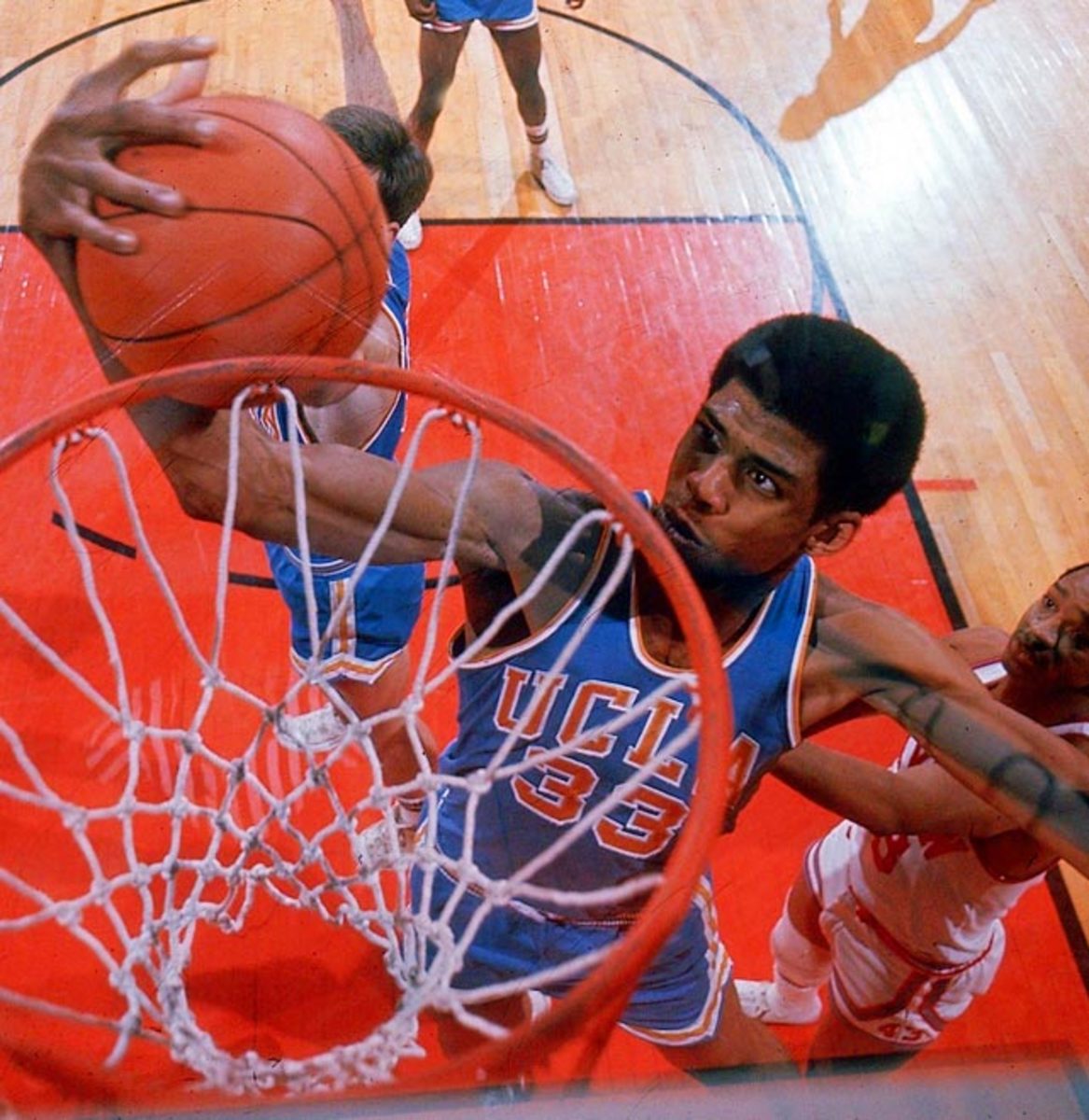
1968 at the Houston Astrodome
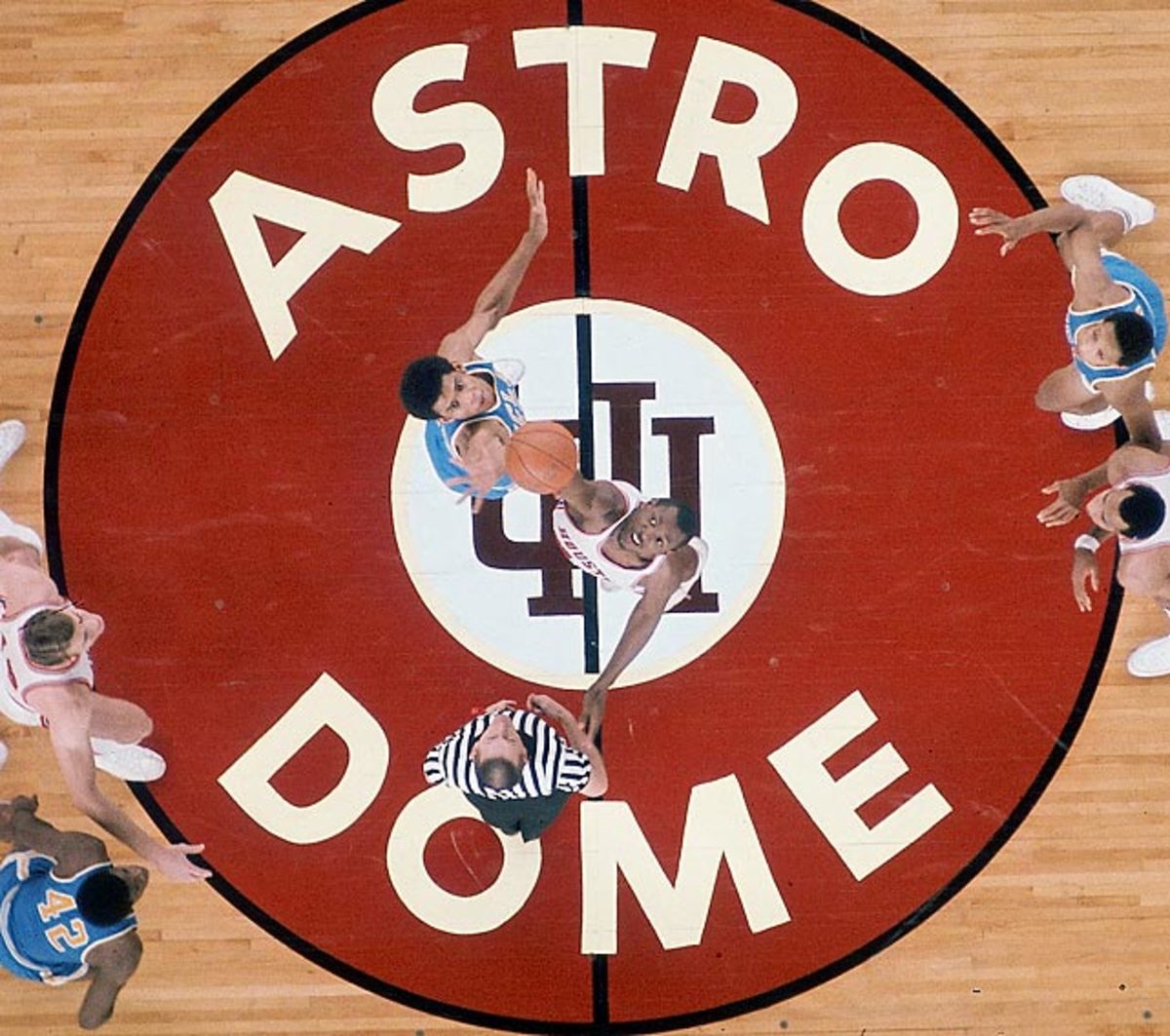
Kareem with the Bruins in the 1960's
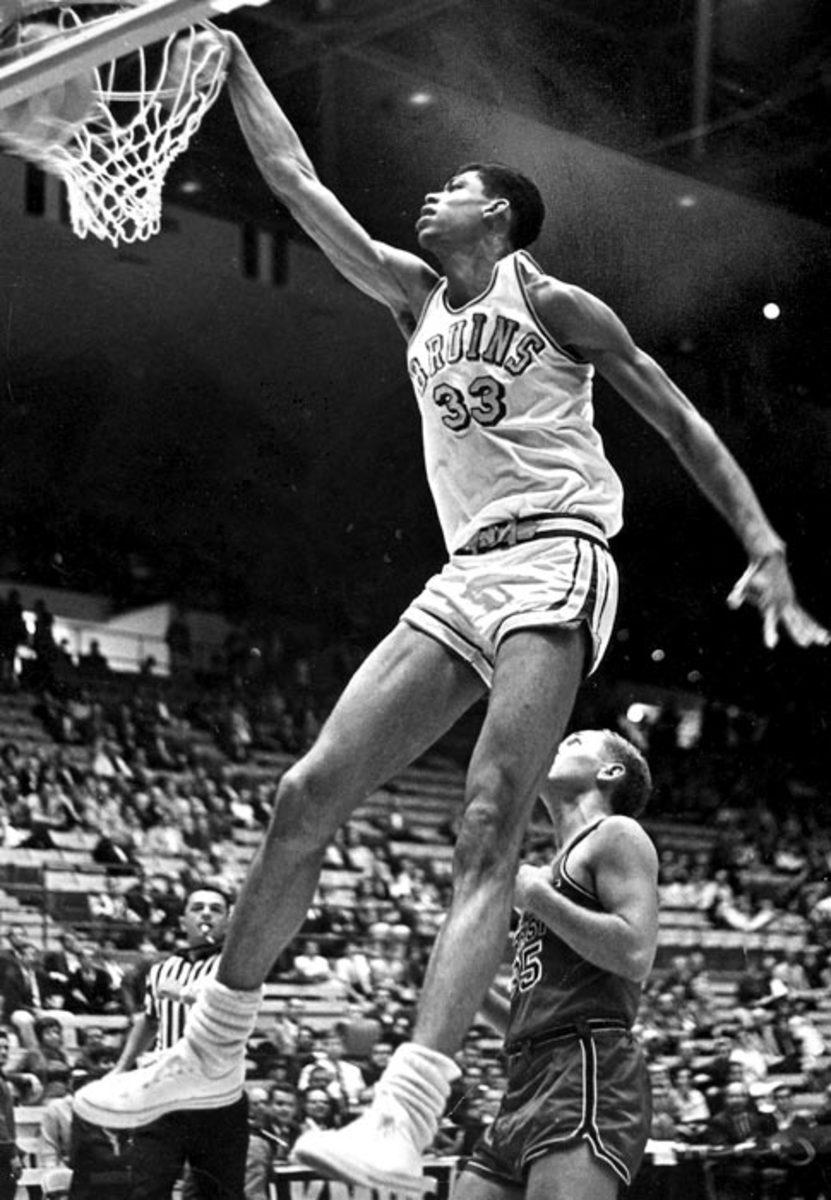
1969

1969 Final Four
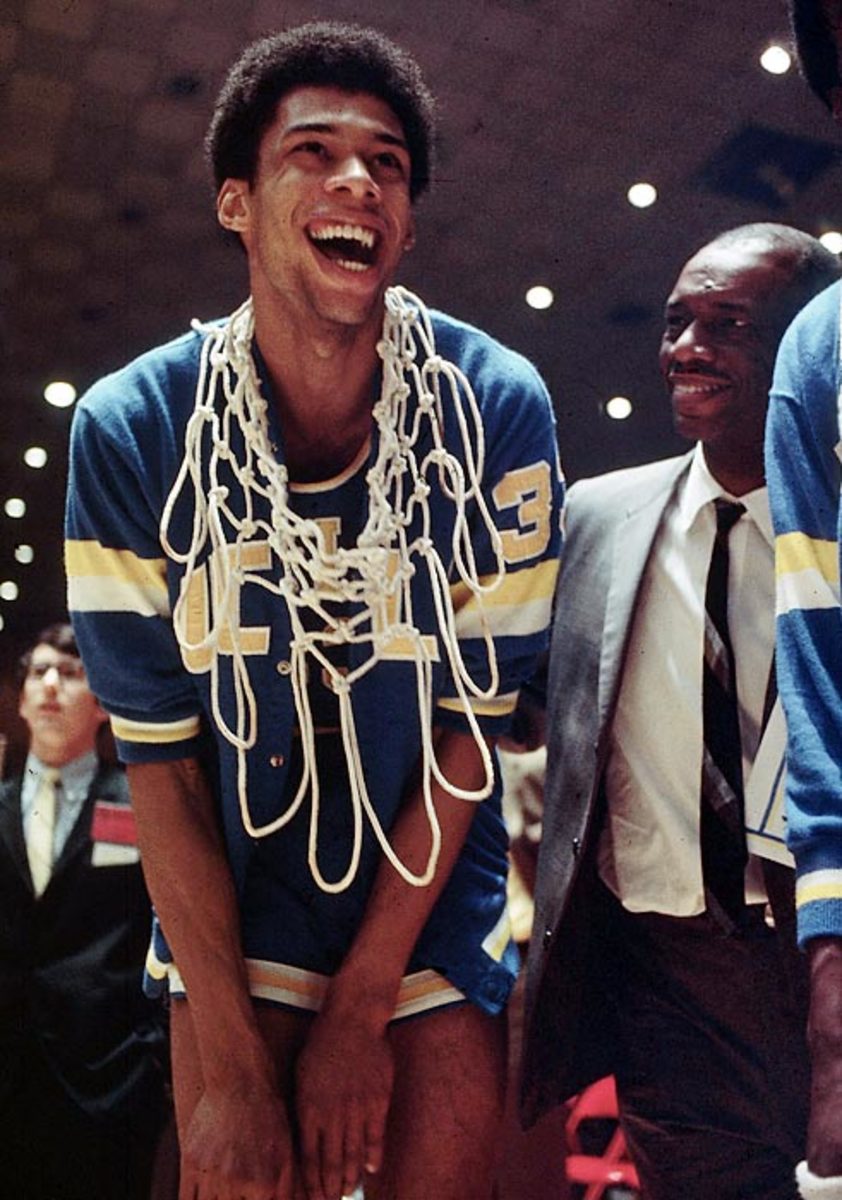
Kareem graduating from UCLA in 1969.
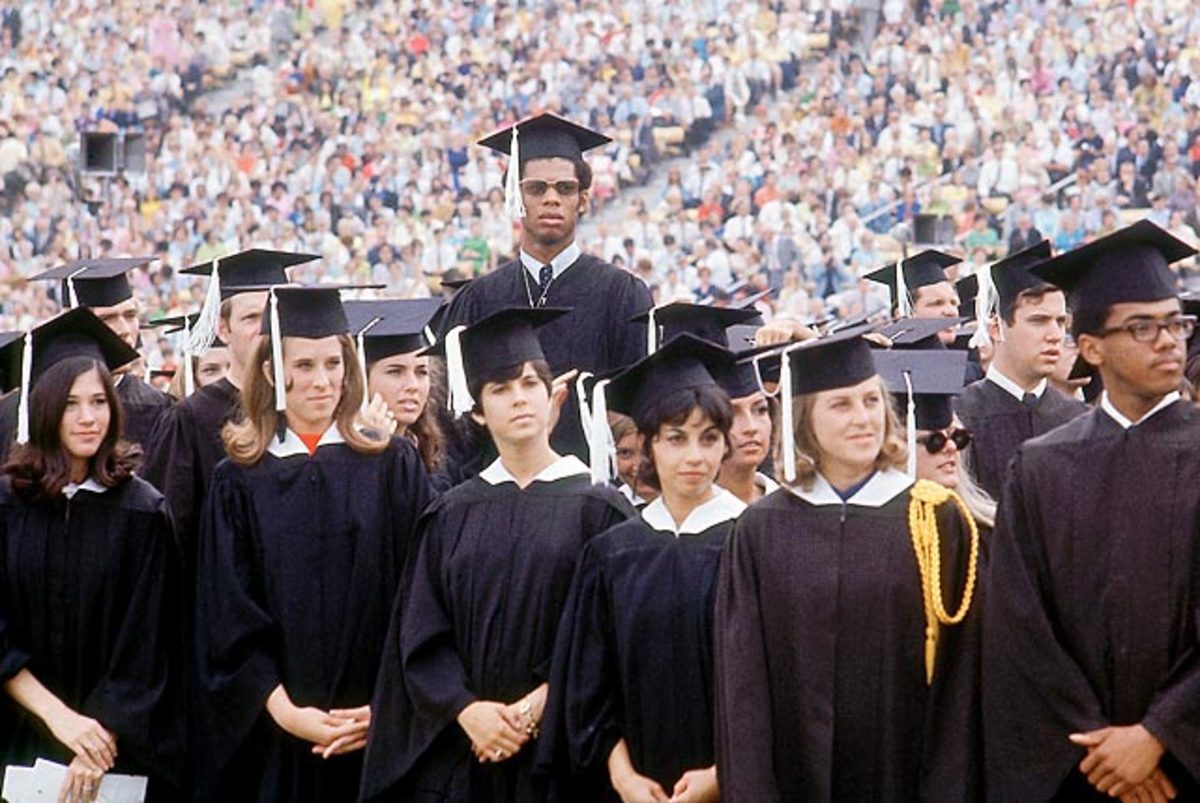
Kareem with coach John Wooden in 1969.
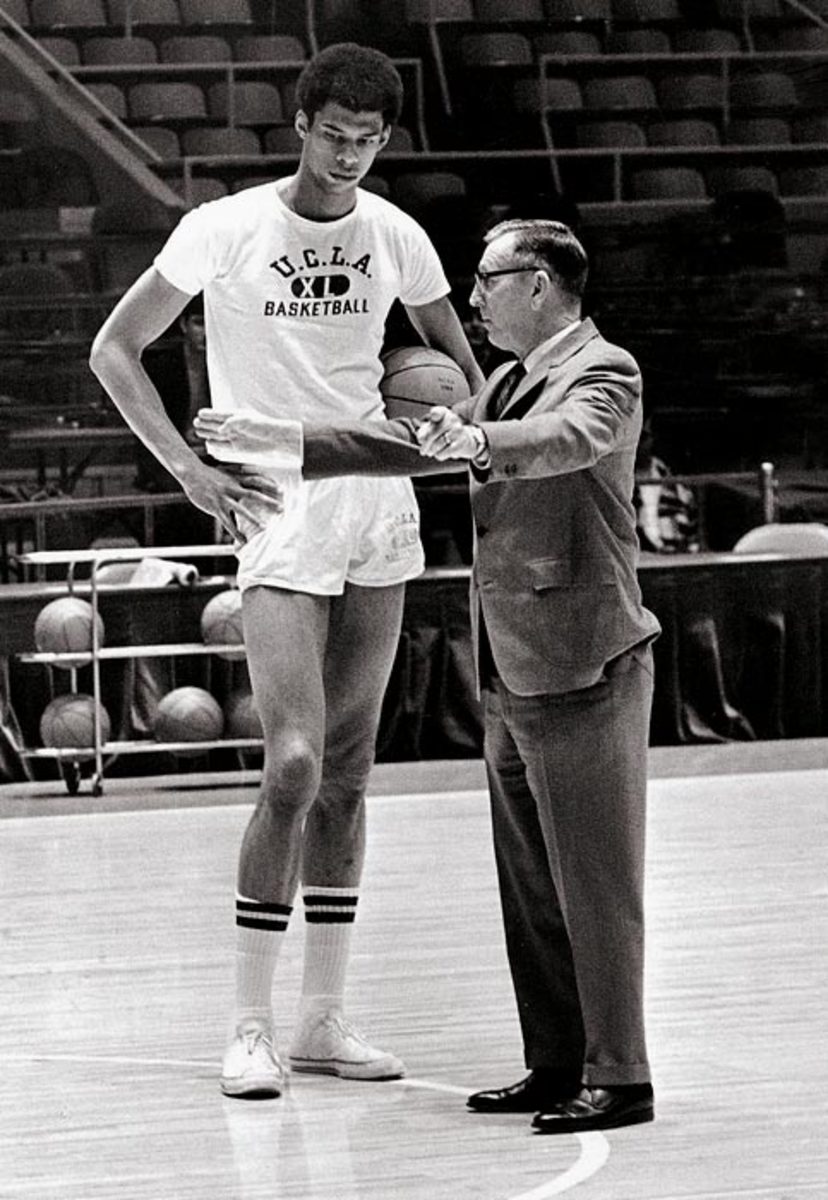
Kareem with this parents in 1969.
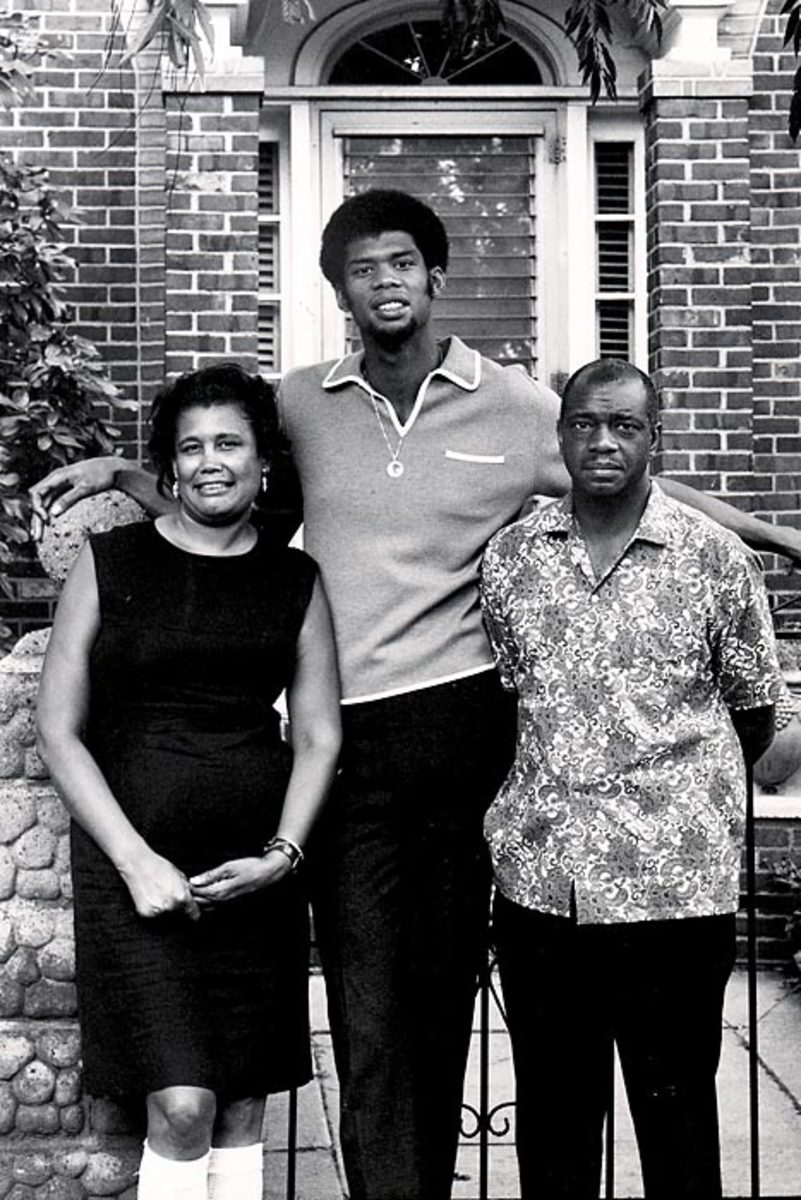
1970

1973

Kareem at the 1974 NBA Finals.
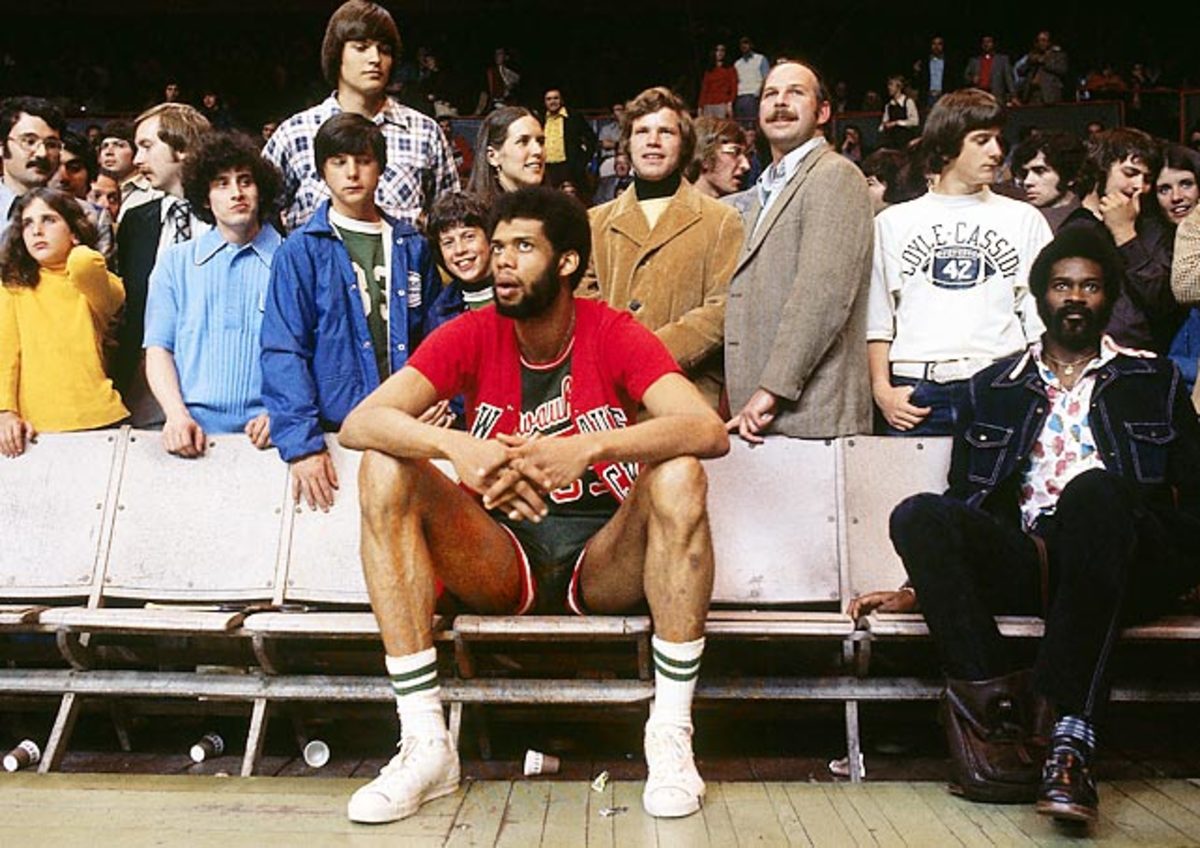
Kareem at the 1974 NBA Finals.

1974

Kareem playing Roger Murdock in the 1980 film "Airplane."
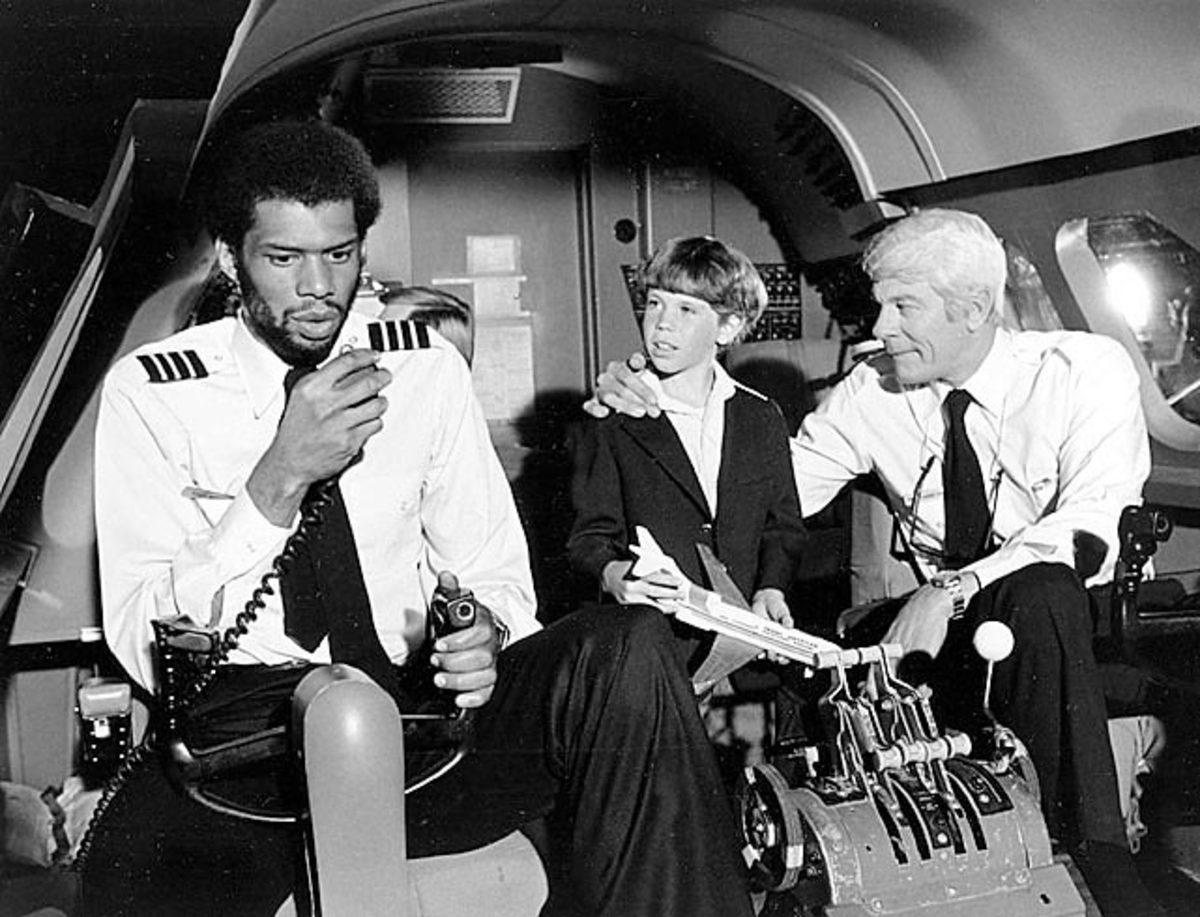
Kareem with friend Cheryl Pistono in 1980.
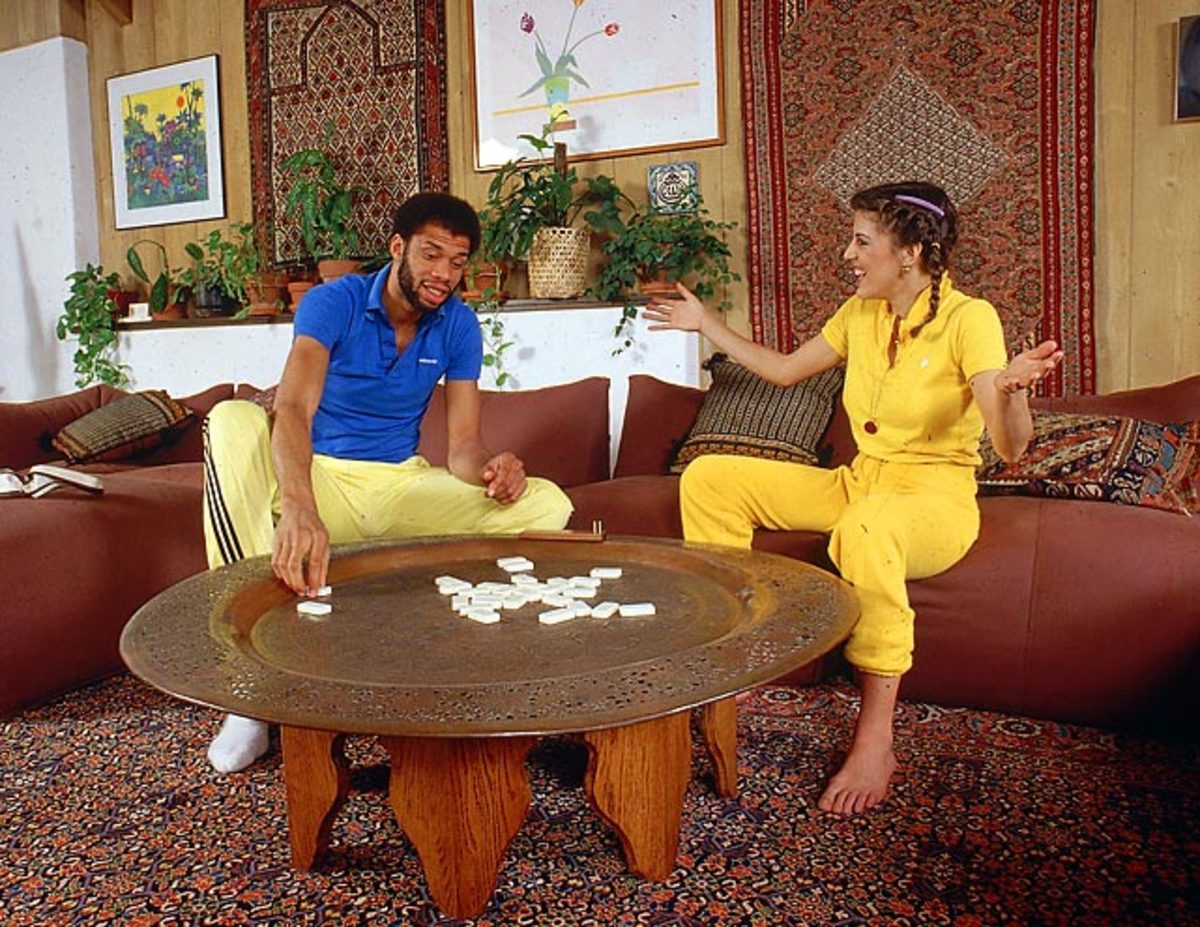
Kareem during the 1980 NBA Finals.
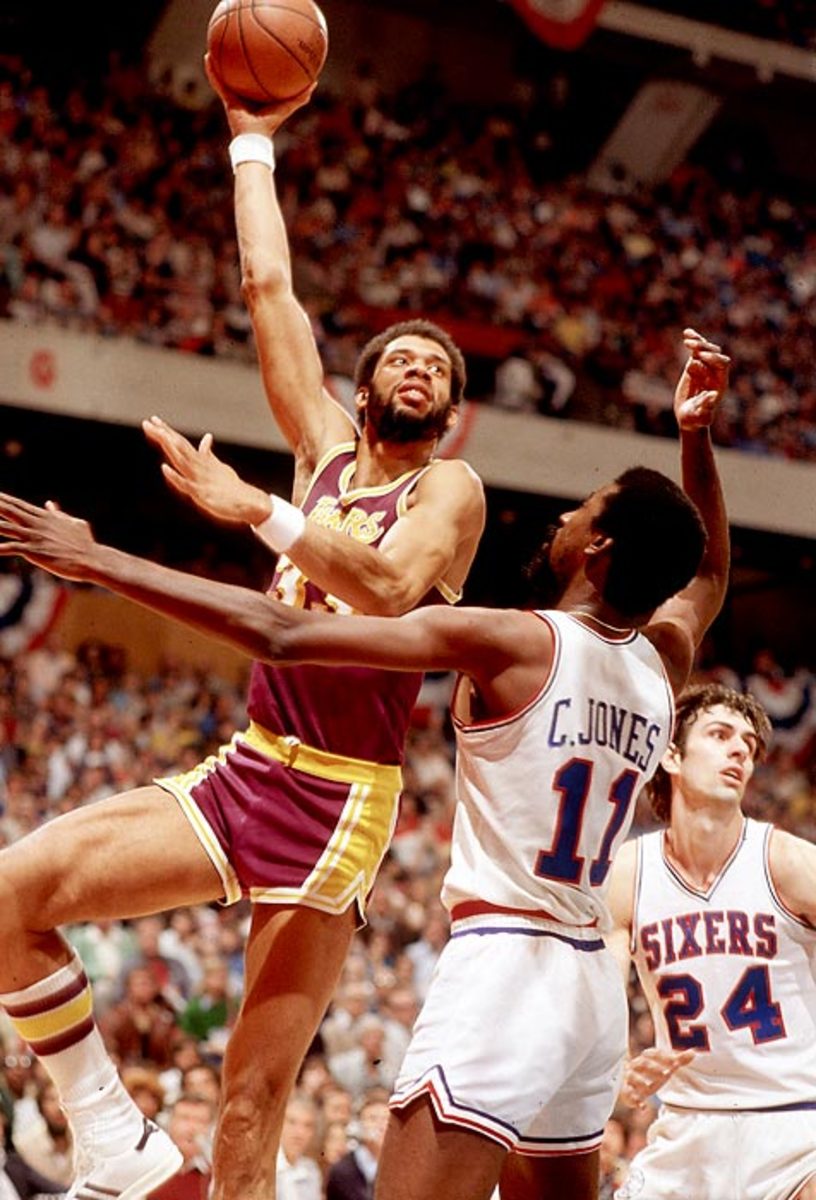
The NBA Goes Back To School Team portrait in 1981.
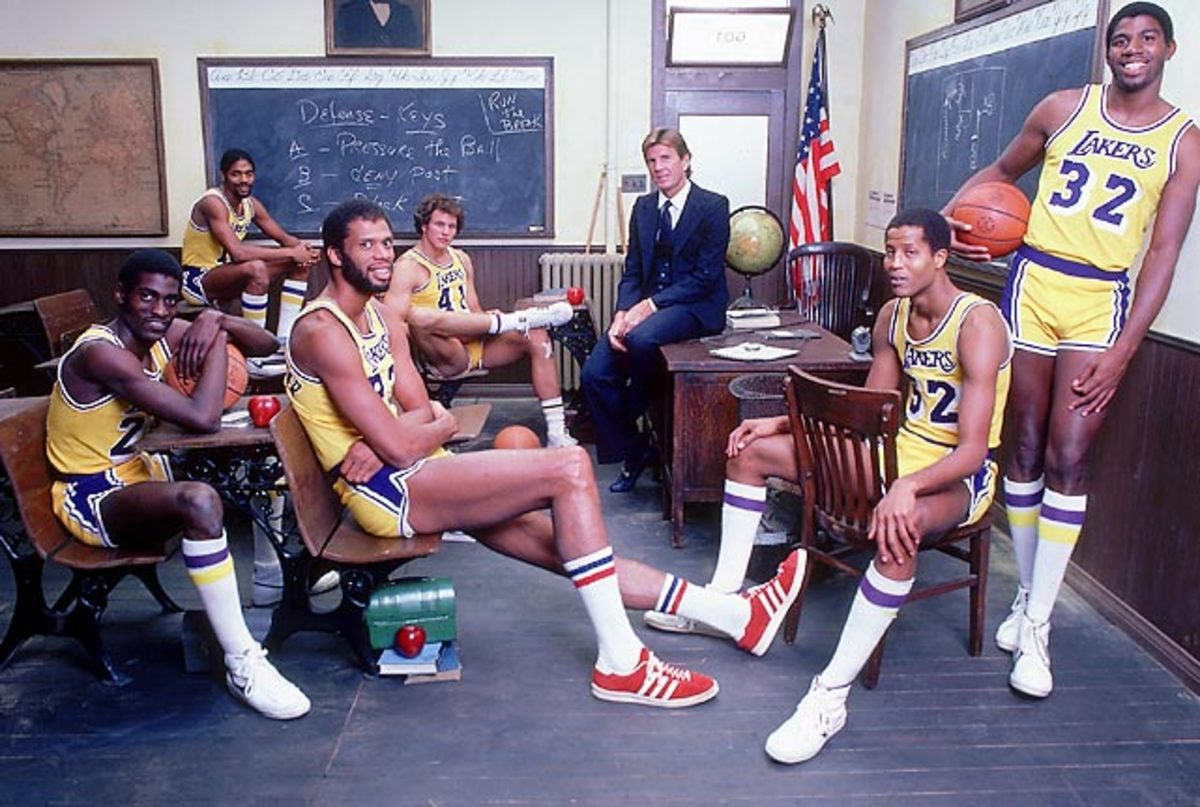
Kareem with Magic Johnson in 1981
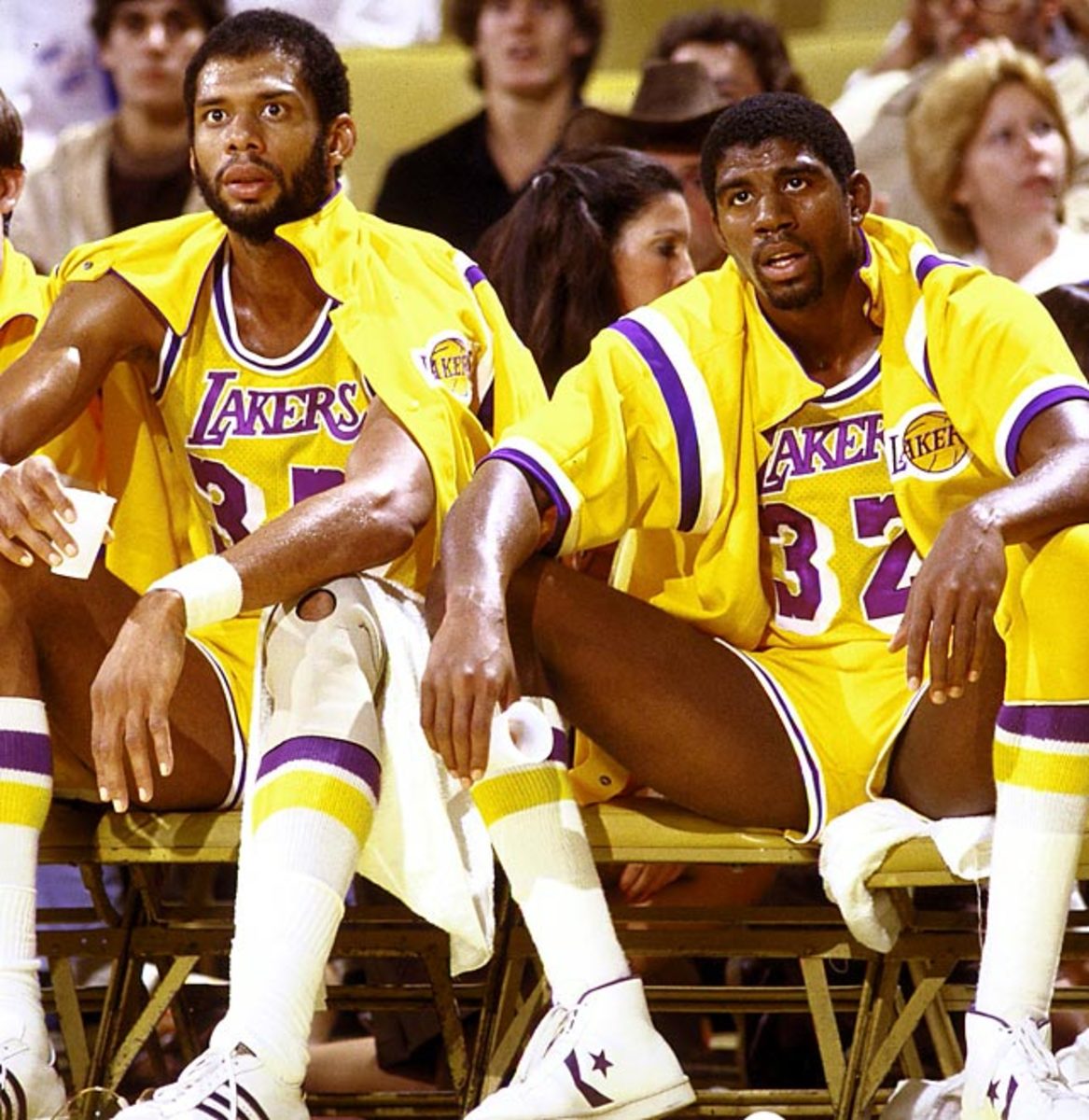
Kareem dunks past Julius Erving in 1982.
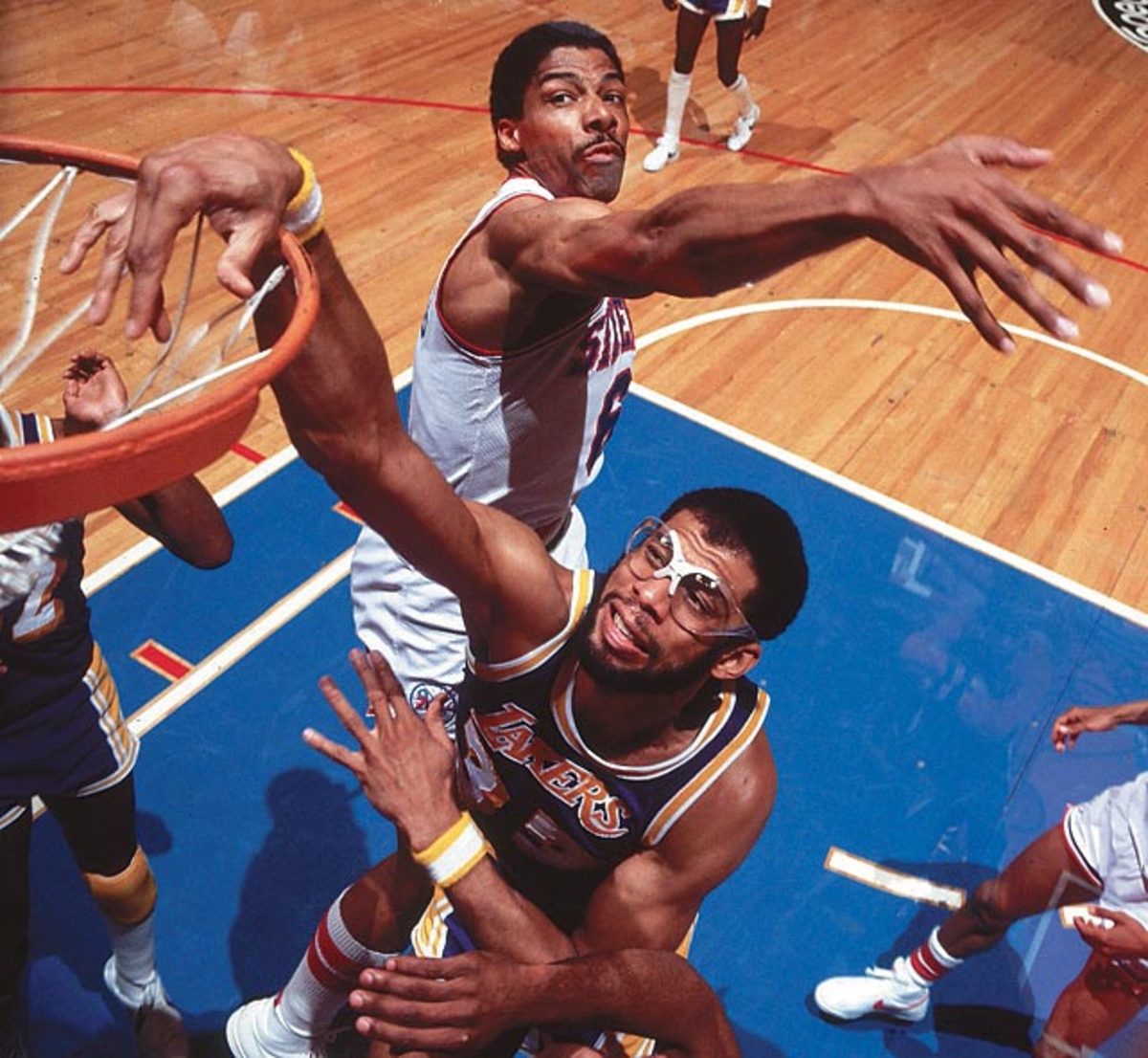
Kareem with coach Pat Riley in 1984.
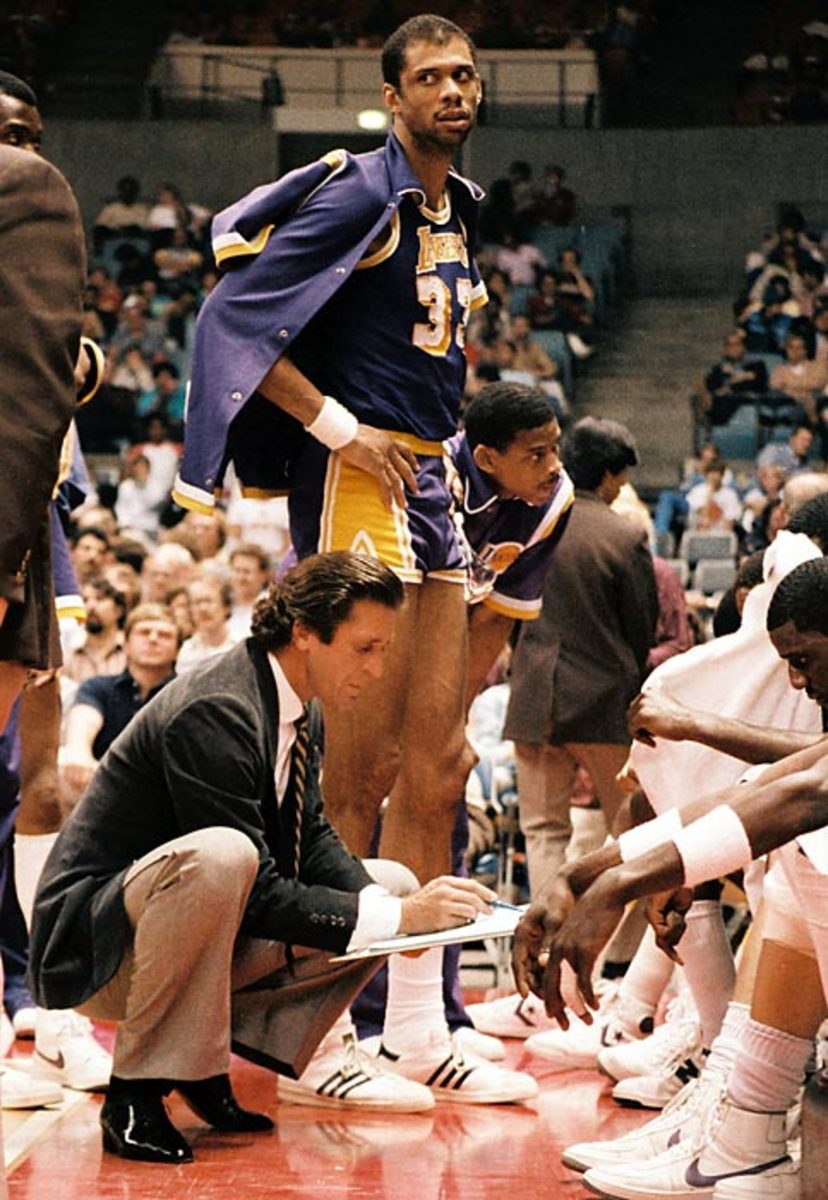
Kareem with Magic Johnson in 1984
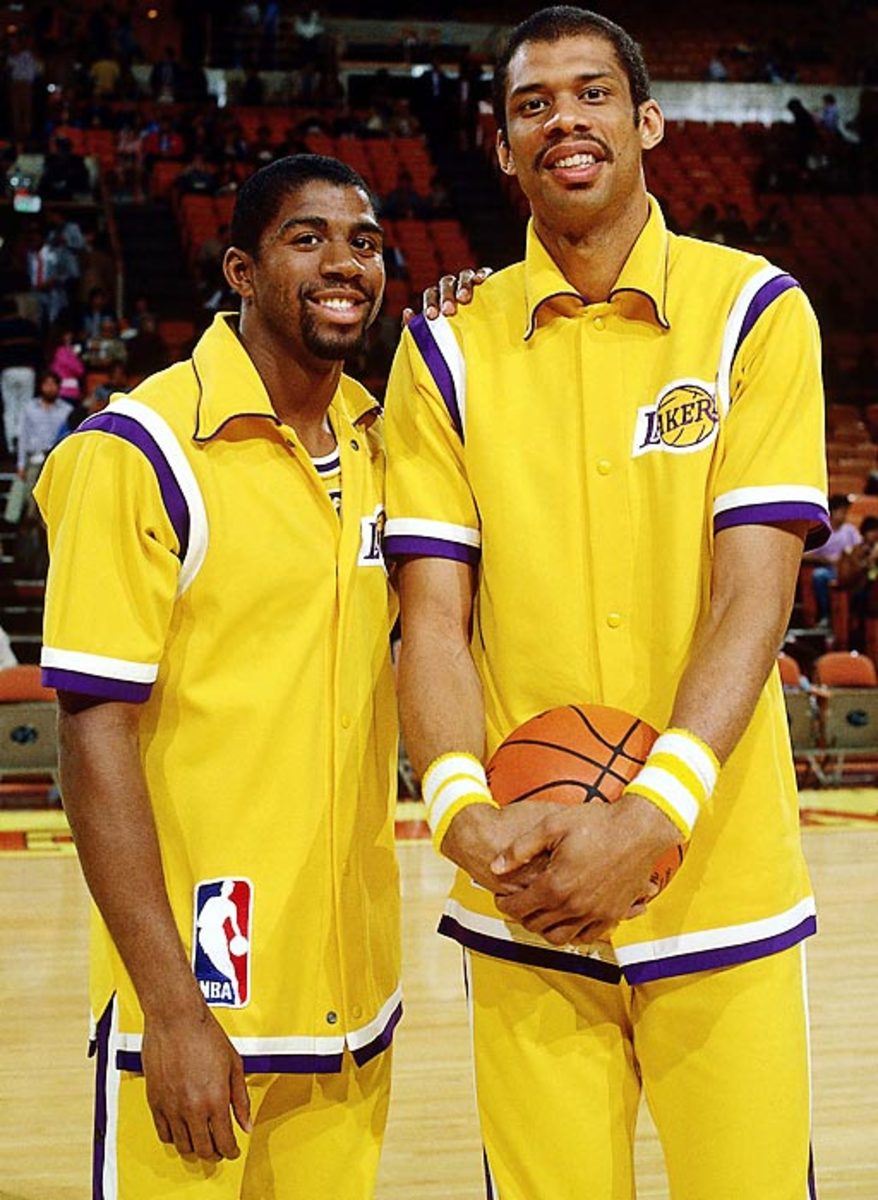
Kareem against the Knicks in 1988.
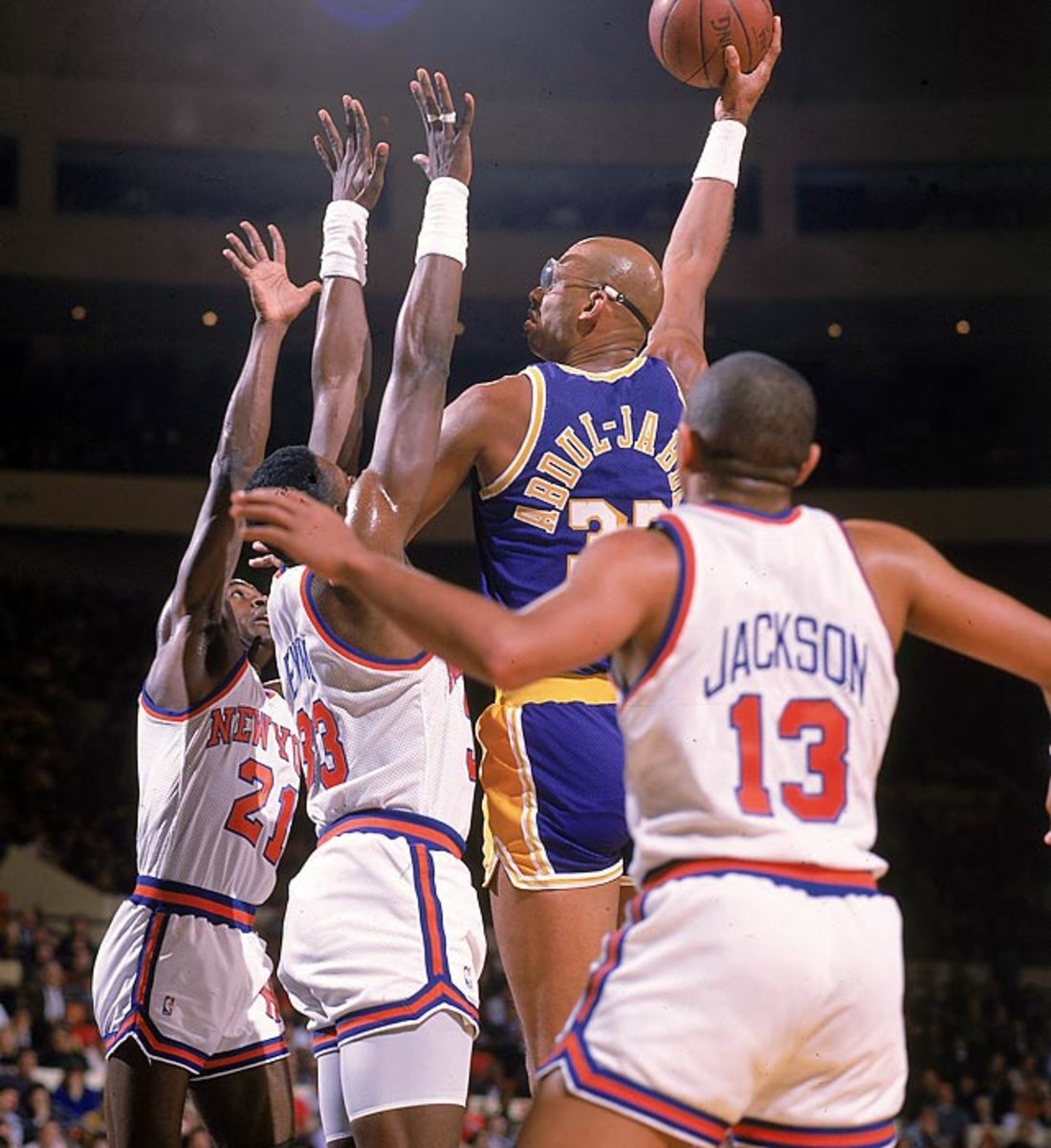
Kareem at his last Milwaukee game in 1988.
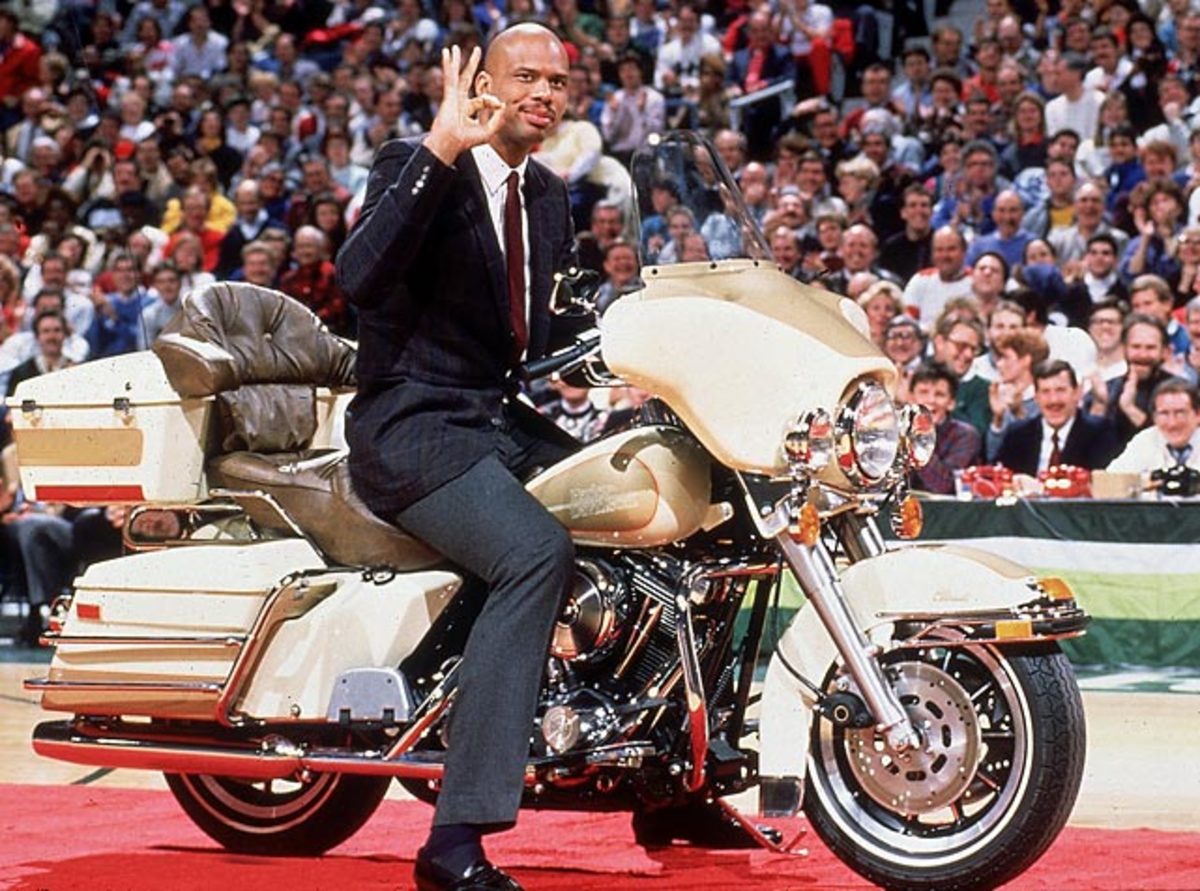
Kareem practicing yoga in 1990.
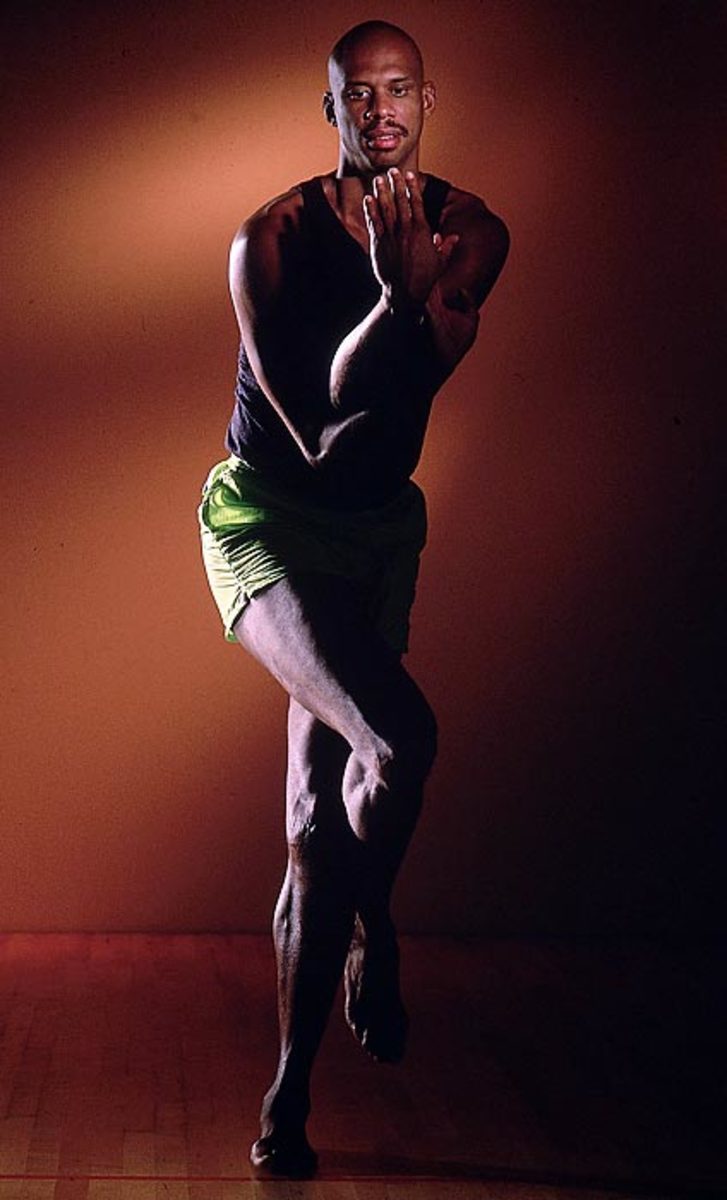
1991

Kareem with Shaquille O'Neal and George Mikan in 1996.
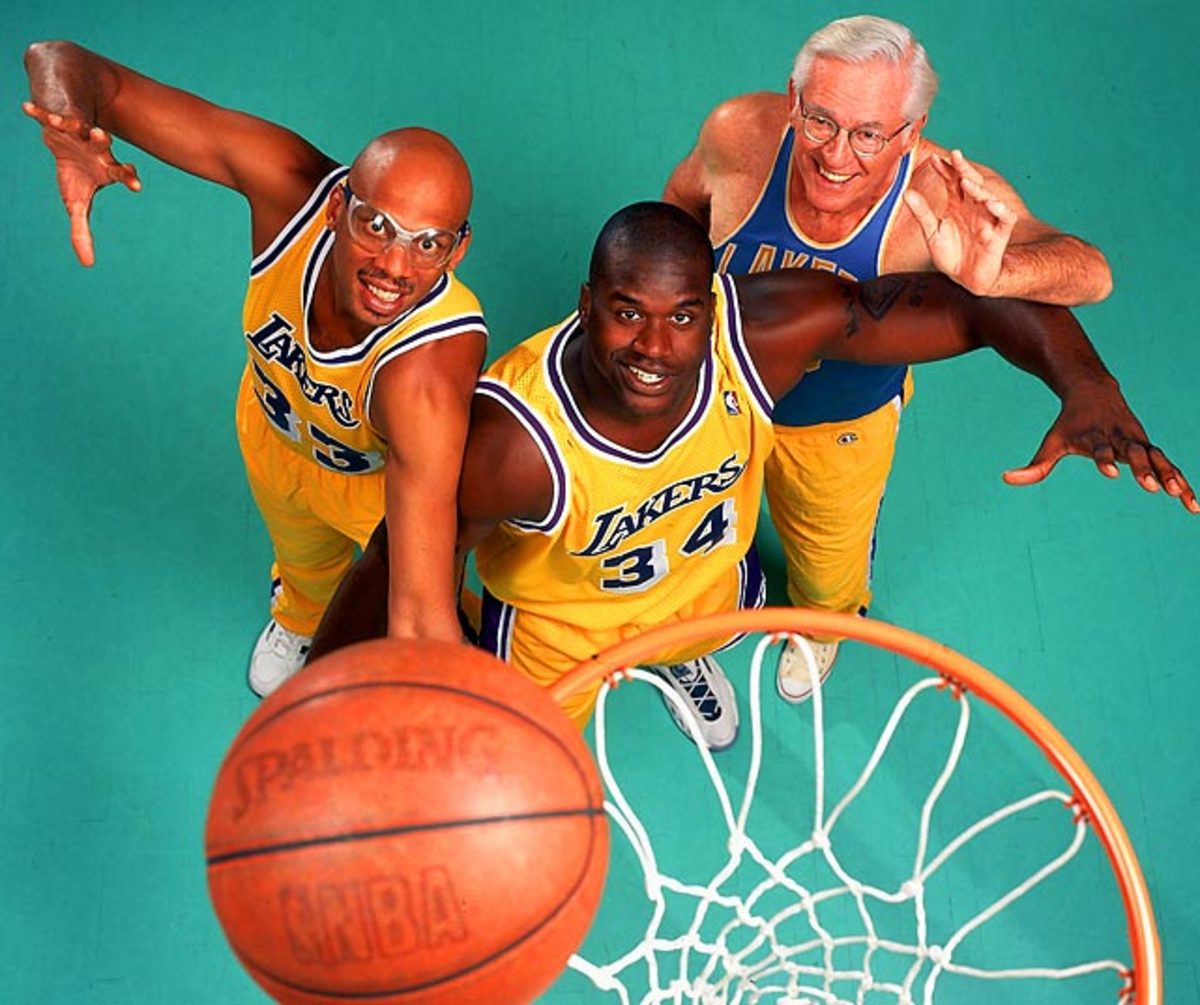
Kareem with kids at the 2005 Adidas Superstar Camp.
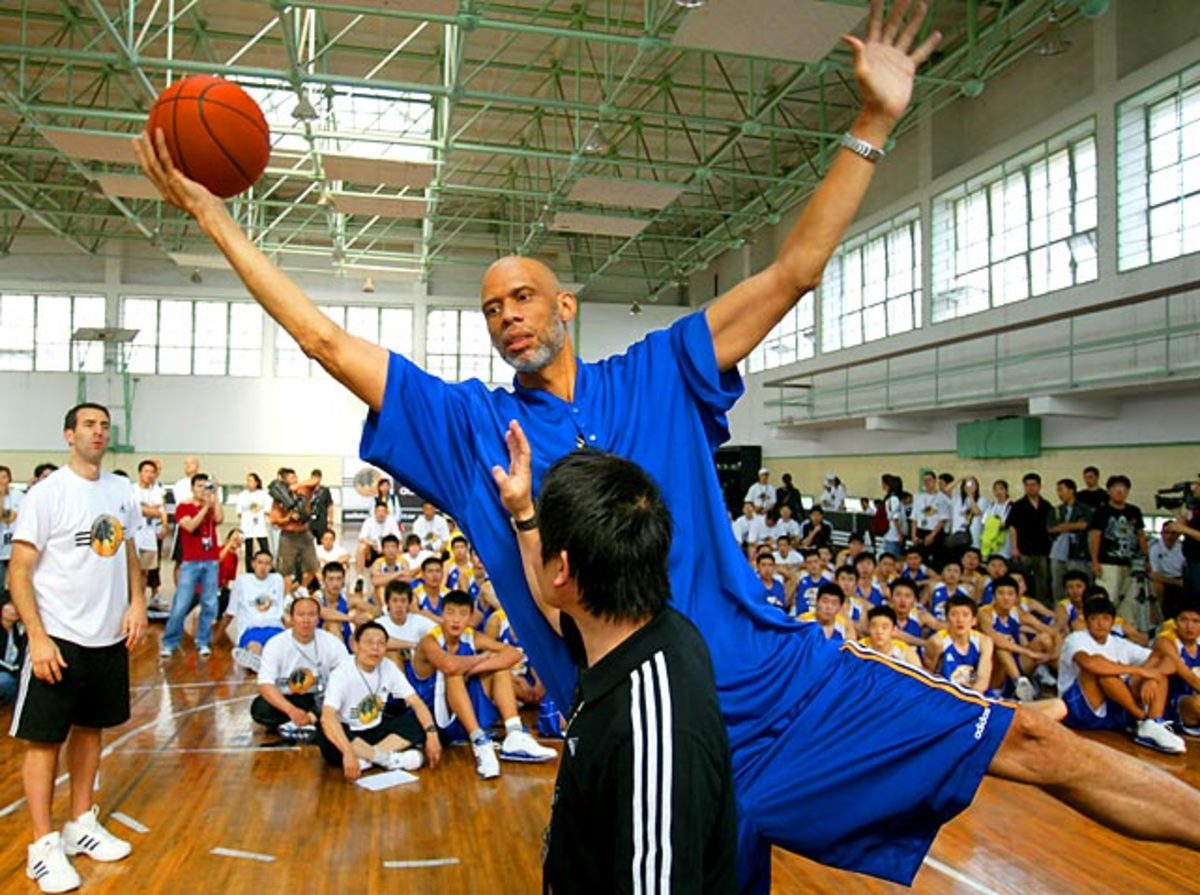
Kareem with Pamala Anderson in 2008.
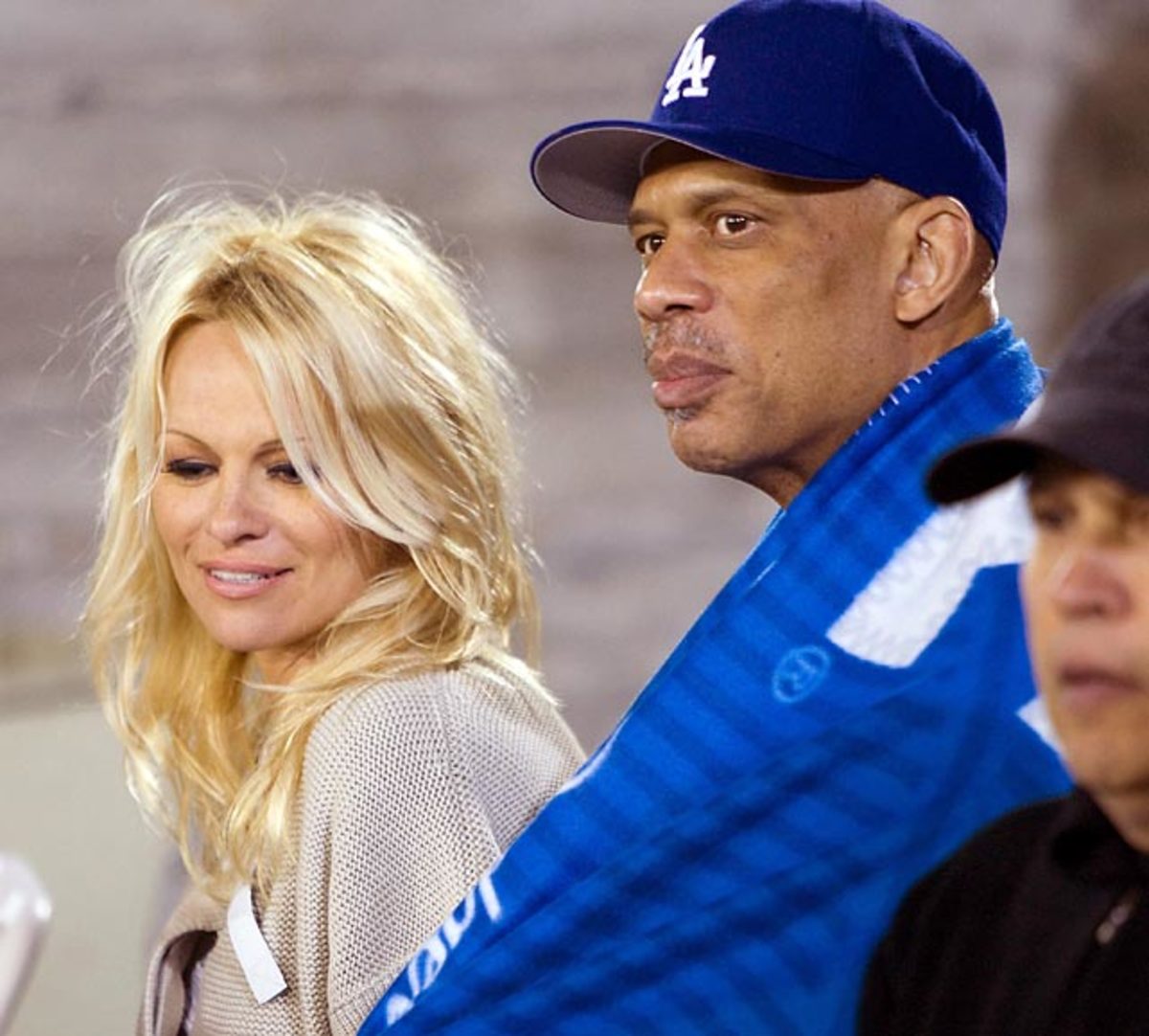
Kareem with actor Sean Astin in 2008.
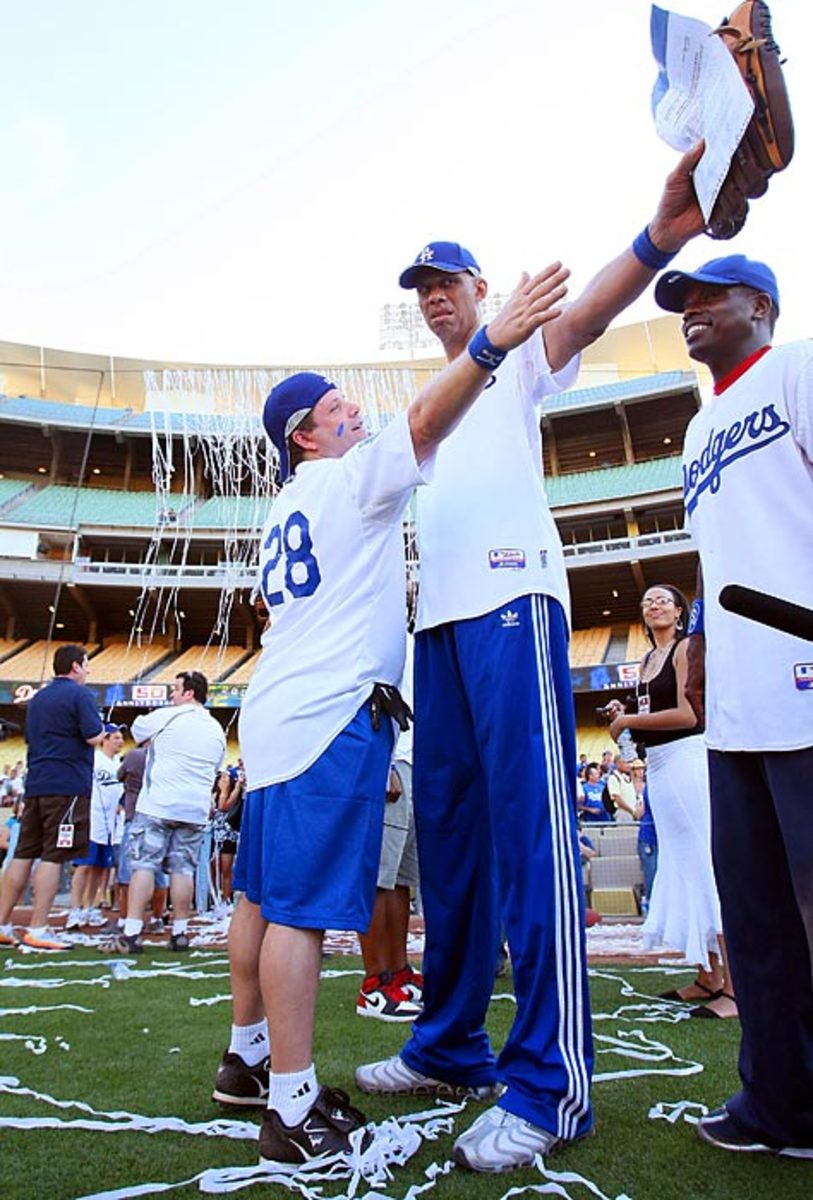
Kareem with Hillary Clinton in 2012.
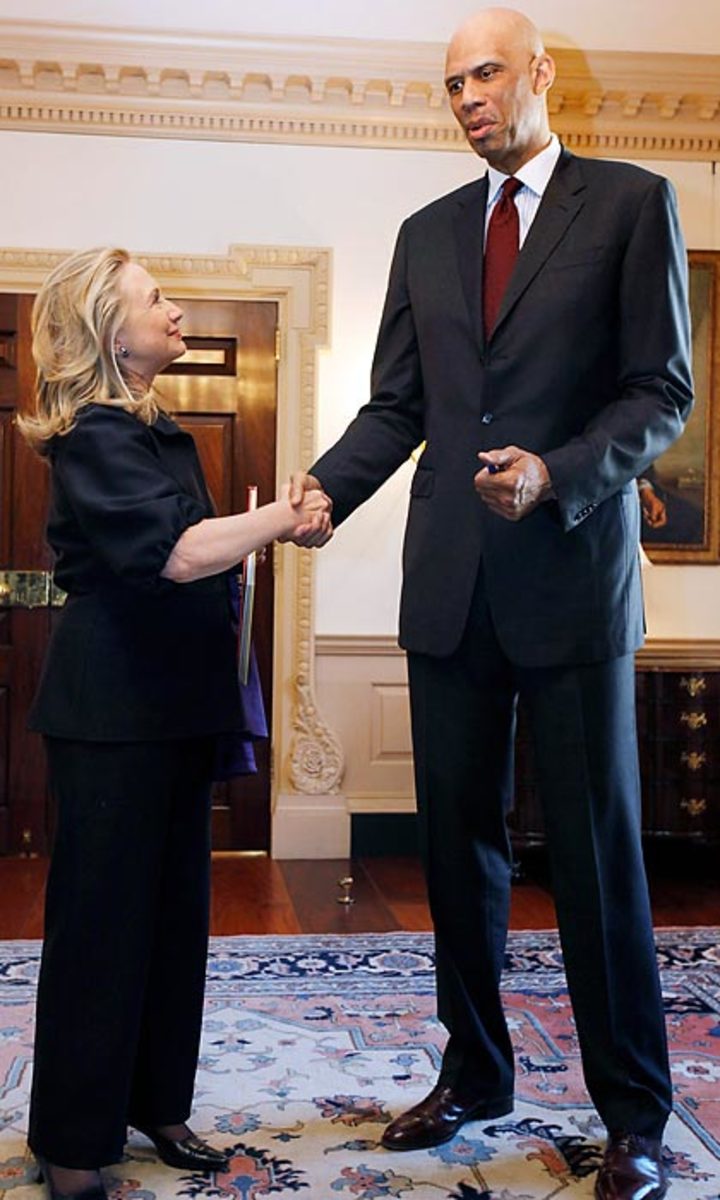
KAJ: The main thing I wanted people to get from this is that our kids are going through the same thing we went through. It’s just as scary and just as wonderful as it was for us. We have to remember that and try to be there for our kids.
SI: I don’t know that I really thought about my parents and what they had to go through in raising me until I got old enough to be a parent.
KAJ: That’s how we find out how wise they were, right? Everybody goes through that.
SI: How has your approach to parenting changed and evolved over the years?
KAJ: I always found that you have to give kids a chance to do it their way. That’s one of the things I learned from John Wooden. John Wooden would let us try it our way for a day or two in practice, and then he’d say “this is how it’s actually done.” You have to give kids a chance to try their way and see if it works. Usually it doesn’t. That enables you to get your point across. But you have to have that kind of patience. That’s a crucial aspect of parenting, the patience to understand that they think they know everything, and you have to let them discover how practical what they’re doing actually is. Things get easier at that point.
